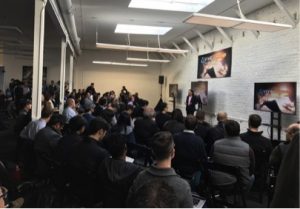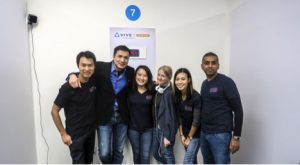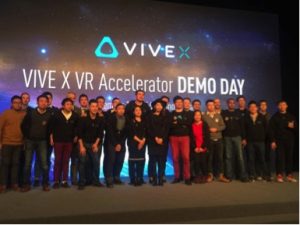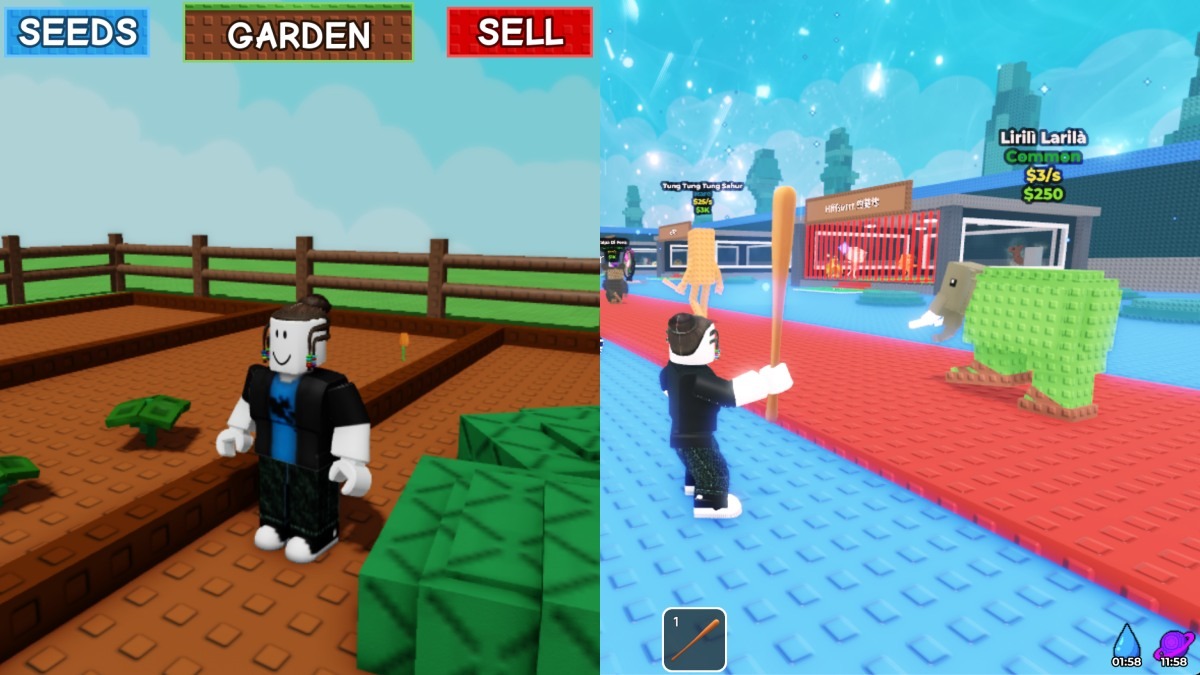Inside Look: HTC’s VIVE X Accelerator Program
Metaverse
5 minutes read
This post is written by Nikhil Jain, ObEN CEO and Co-Founder
In July 2016, HTC VIVE announced that ObEN would be one of 33 companies to join VIVE X – the first accelerator to focus solely on VR companies. With more than 1,200 applicants and a $100 million investment fund attached to it, the program is much in demand, and as HTC Vive announces its second batch of companies, I wanted to provide my insights and learnings from that first four-month program.
Joining the HTC VIVE Network
The program kicked off in August 2016, and each of the 33 companies was assigned to one of the four host cities: Beijing, Shenzhen, Taipei and San Francisco. ObEN was assigned to the Beijing office, which along with Shenzhen, falls under HTC VIVE’s China Regional President, Alvin Wang Graylin, and is managed by Michael Lewis and Peggy Yuan.
Unlike other accelerators that require companies to relocate, VIVE X instead relied on weekly progress check-ins and worked with us remotely to build a custom program to guide us in delivering a product for the end-of-year Demo Day. VIVE X also promoted networking between the Batch 1 companies and set-up chat groups, where we shared resources, sample prototypes, tips on coding and design and more. This information and idea exchange was crucial to ObEN’s progress.
VIVE X invited ObEN to present our technology at the Virtual Reality Venture Capital Alliance (VRVCA) conference in Beijing in September, providing an opportunity to network and gather feedback from some of the top VCs in the AR/VR space. Throughout the program, VIVE X also arranged for sessions with top entrepreneurs such as Robert Scoble and Charles Huang, the co-founder of Guitar Hero, reporters, executives and game engine companies. Beyond access to investors, mentors and industry thought leaders, VIVE X was and continues to be very generous with introductions to potential customers and partners. These introductions made a significant difference in the quality of the program.
Given its proximity to ObEN’s Los Angeles headquarters, we visited the VIVE X San Francisco office weekly to interact with other teams and share feedback on our progress and challenges. ObEN’s mission is to enable every consumer to have a smart virtual avatar that looks, talks and thinks like him or her. One of the challenges we faced in pursuing our mission was to overcome what is known as the uncanny valley for avatars – they need to be approachable and believable, but not too life-like. Throughout the program, thanks to the collaboration with the other teams and our mentors, we came up with several iterations of our AI technology to improve the quality of our avatars, and made a breakthrough when we connected our personalized speech and visual tech with appropriate movements between the two. The San Francisco office is led by Marc Metis, VP of HTC Vive and global head of Vive X. Marc is supported by Pearly Chen and Jeff Lin. VIVE executives and VIVE X support teams were always available to assess our latest builds, provide frank feedback, discuss challenges, brainstorm solutions and provide necessary introductions to other industry experts for each issue.
Demo Day
The program concluded with a series of demo days in San Francisco, Beijing and Taipei, where each startup had the opportunity to present their technology in front of top VCs and companies. The format consisted of a 3-5 minute pitch session on stage followed by a live-in booth demo for all attendees. At the SF Demo Day, the venue was packed and it was encouraging to witness such strong interest in the VR startup space.

SF Demo Day keynote speech by Cher Wang, HTC Co-founder and Chairperson
At our booth, attendees created their virtual avatars from just one selfie and a brief audio recording, and were able to see their own avatar talking and singing in VR. We received firsthand, constructive feedback from the attendees, which made the experience and hard work worthwhile.

At the Beijing Demo Day the participating VIVE X companies also included those from the Shenzhen VIVE X office, which is testament not only to the huge market for VR in China, but also to the amount of venture capital flowing into Chinese VR companies. With 500+ Chinese attendees, the ObEN booth was bustling once again, as there was enormous interest in creating personal smart avatars.

HTC Vive X Batch 1 companies at Beijing Demo Day
From Beijing, we headed to Taiwan for the final VIVE X Demo Day where we toured the HTC Headquarters, met the VIVE X Taiwan team managed by Raymond Pao and Mike Chi, and were introduced to local investors and potential partners.
Simply put, ObEN’s participation in the program has been transformative for the company across all fronts, especially product development, recruiting and funding. Although it’s been two months since ObEN “graduated” from the VIVE X program, we still interact regularly with HTC executives and other VIVE X portfolio companies, and continue to receive investor leads, business development prospects and invitations for joint demos. Based on ObEN’s experience, I highly recommend the VIVE X program and encourage entrepreneurs in the AR/VR space to apply to become a part of this thriving and supportive community.


